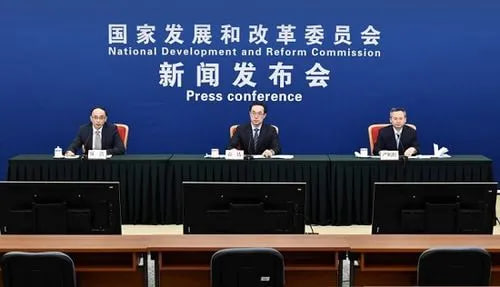Trump's Dinner with Big Pharma: A Deal in the Making or a Storm Brewing?
Meta Description: Analysis of Trump's meeting with Pfizer and Lilly CEOs, exploring the implications for the pharmaceutical industry under a potential Kennedy-led HHS. Includes insights into Robert F. Kennedy Jr.'s health agenda and its potential impact on Big Pharma. #Trump #Pharmaceuticals #Pfizer #Lilly #RobertKennedyJr #HHS
Whoa, folks! Buckle up, because the pharmaceutical world is buzzing louder than a beehive after a recent dinner at Mar-a-Lago. Donald Trump, the man who never shies away from a headline, hosted a power dinner with the CEOs of pharmaceutical giants Pfizer and Eli Lilly, along with the head of PhRMA (Pharmaceutical Research and Manufacturers of America). This wasn't just any get-together; it happened in the wake of Trump's controversial nomination of Robert F. Kennedy Jr. as the next Secretary of Health and Human Services (HHS). Now, Kennedy, a known vaccine skeptic, has sent ripples of uncertainty through the industry, causing some serious stock market jitters. The meeting, therefore, felt like a high-stakes poker game – a chance for Big Pharma to get a read on the upcoming administration's plans and potentially influence them. Was it a strategic olive branch, a damage-control exercise, or simply a well-orchestrated PR stunt? Let's dive deep into this fascinating development and unpack the potential implications for the future of healthcare in the US. This isn't just about stock prices; it's about the very fabric of healthcare access and affordability in America. Get ready for a rollercoaster ride of insights, analysis, and informed speculation!
Trump, Big Pharma, and the Kennedy Factor: A High-Stakes Game
The meeting itself, as reported by various media outlets, involved a pre-dinner cocktail reception followed by a nearly three-hour dinner. Attending from the Trump camp were Kennedy himself, incoming Chief of Staff Susie Wiles, and Dr. Mehmet Oz, the nominee to head the Centers for Medicare & Medicaid Services (CMS). This high-powered gathering signaled the importance Trump places on addressing concerns from the pharmaceutical industry, especially after the initial market reaction to Kennedy’s nomination. Pfizer and Eli Lilly, two of the biggest names in the business, were naturally keen to understand the new administration's approach to drug pricing, regulation, and overall healthcare policy. This isn't just about immediate financial impact; it’s about long-term strategic positioning within a potentially shifting regulatory landscape.
The presence of PhRMA's CEO, Steve Ubl, indicated a broader industry effort to engage with the incoming administration. PhRMA represents a wide range of pharmaceutical companies, and its participation suggests a collective concern about the implications of Kennedy's appointment. The industry is hoping to navigate the political landscape and ensure a business-friendly environment despite the uncertainty surrounding Kennedy's anti-establishment stance. This strategy reflects a pragmatic approach, prioritizing collaboration over confrontation in the face of potential regulatory changes.
The Elephant in the Room: Robert F. Kennedy Jr.'s "Make America Healthy Again" Agenda
The main driver of the uncertainty within the pharmaceutical industry is Robert F. Kennedy Jr.'s platform, dubbed "Make America Healthy Again" (MAHA). While some of his proposals, like reducing processed foods in school lunches and decreasing sugary drinks consumption, align with public health goals, his approach is far from conventional. His deep skepticism of pharmaceutical companies and his calls for a significant overhaul of the Food and Drug Administration (FDA) have caused considerable alarm. He has openly criticized the FDA for suppressing alternative treatments and favoring patented drugs, suggesting a potential shift toward prioritizing alternative medicine and questioning the current regulatory framework.
Kennedy’s vision extends beyond dietary changes and includes a significant overhaul of the health insurance system. He advocates for coverage of alternative health practices, such as gym memberships and healthy food choices, alongside traditional medicine. This represents a radical shift from the current system, which predominantly focuses on pharmaceutical interventions. This non-traditional approach poses significant challenges to the established order, creating uncertainty for the industry players accustomed to a more conventional healthcare landscape.
Pfizer and Eli Lilly: Navigating the Uncertain Waters
The attendance of Pfizer and Eli Lilly CEOs at the dinner highlights the companies' proactive approach to managing risk. Both companies have witnessed stock price dips following Kennedy’s nomination, reflecting their vulnerabilities to policy changes under his potential leadership. This proactive engagement demonstrates their awareness of the potential changes and a willingness to engage in dialogue to shape the policy landscape. Their participation isn't merely about damage control; it represents a strategic effort to influence the direction of future healthcare policies.
The dinner presented an opportunity for these companies to directly address their concerns with Trump and Kennedy, potentially mitigating some of the risks associated with the upcoming administration. By participating in the high-level discussions, they demonstrate a commitment to influencing the policy decisions that will inevitably impact their businesses. This strategic engagement showcases a degree of business savvy and a willingness to adapt to a shifting political landscape.
The Uncertain Future of Healthcare in America
The meeting offers a glimpse into the complex interplay between politics, business, and public health. While the exact outcome remains uncertain, the event highlights the growing tension between the pharmaceutical industry and those who advocate for alternative approaches to healthcare. The future of healthcare in America hangs in the balance, with potential changes ranging from drug pricing policies to the very fabric of the regulatory landscape. The level of uncertainty surrounding Kennedy’s agenda makes it difficult to predict the industry's long-term trajectory.
The outcome of this political chess game will profoundly affect the accessibility and affordability of healthcare in the US. This isn't just about Big Pharma; it's about all of us.
The Impact on Pharmaceutical Stock Prices
The pharmaceutical sector’s reaction to Kennedy's nomination, including the initial dip in Pfizer’s stock price, underscores the market's sensitivity to regulatory uncertainty. The subsequent meeting between Trump and industry leaders suggests an attempt to quell those anxieties and potentially shape the future regulatory environment. But the long-term effects remain to be seen. The market's reaction to any policy shift, particularly concerning drug pricing and regulation, will be significant. The inherent volatility of the pharmaceutical sector, due to its dependence on regulatory approvals and patent expirations, is further amplified by this political uncertainty.
Frequently Asked Questions (FAQs)
Q1: What are Robert F. Kennedy Jr.’s main concerns regarding the pharmaceutical industry?
A1: Robert F. Kennedy Jr. is critical of what he perceives as the industry's undue influence on healthcare policy and its aggressive marketing tactics. He’s also concerned about the potential side effects of some pharmaceutical drugs and advocates for exploring alternative treatment options.
Q2: How might Kennedy's policies affect drug pricing?
A2: Kennedy's policies could potentially lead to increased scrutiny of drug pricing practices, potentially resulting in lower prices for consumers. However, the exact impact is difficult to predict and depends on the specific policies implemented.
Q3: What is the role of PhRMA in this situation?
A3: PhRMA represents the interests of the pharmaceutical industry and is actively engaged in shaping healthcare policies. Their participation in the meeting with Trump indicates their desire to influence the direction of healthcare policy under the next administration.
Q4: What are the potential long-term effects of this meeting?
A4: The long-term effects are uncertain, but the meeting suggests a potential attempt by the Trump administration to address concerns from the pharmaceutical industry and potentially mitigate the disruptions caused by Kennedy's appointment.
Q5: Could this lead to changes in FDA regulations?
A5: Kennedy's critical view of the FDA suggests potential changes to its regulatory framework, possibly leading to a less stringent approach to drug approvals and potentially greater allowance for alternative therapies. However, the extent of these changes remains unclear.
Q6: What does this mean for the average American consumer?
A6: The outcome of this political dynamic will directly impact the affordability and accessibility of healthcare for the average American. Changes in drug pricing, regulatory approvals, and the range of covered therapies will have a profound influence on the healthcare landscape and ultimately affect the individual’s out-of-pocket expenses and treatment options.
Conclusion
The dinner at Mar-a-Lago was a significant event, highlighting the complex interplay between politics, the pharmaceutical industry, and public health. The future of healthcare in America remains uncertain, but this meeting symbolizes the industry's proactive attempt to navigate the challenges posed by a potentially disruptive administration. The coming months will be critical in determining the long-term impact of Kennedy’s appointment and the subsequent policy changes. It’s a situation that demands close monitoring and careful analysis from all stakeholders, including consumers, policymakers, and the pharmaceutical industry itself. The game is far from over, and the stakes remain incredibly high.



